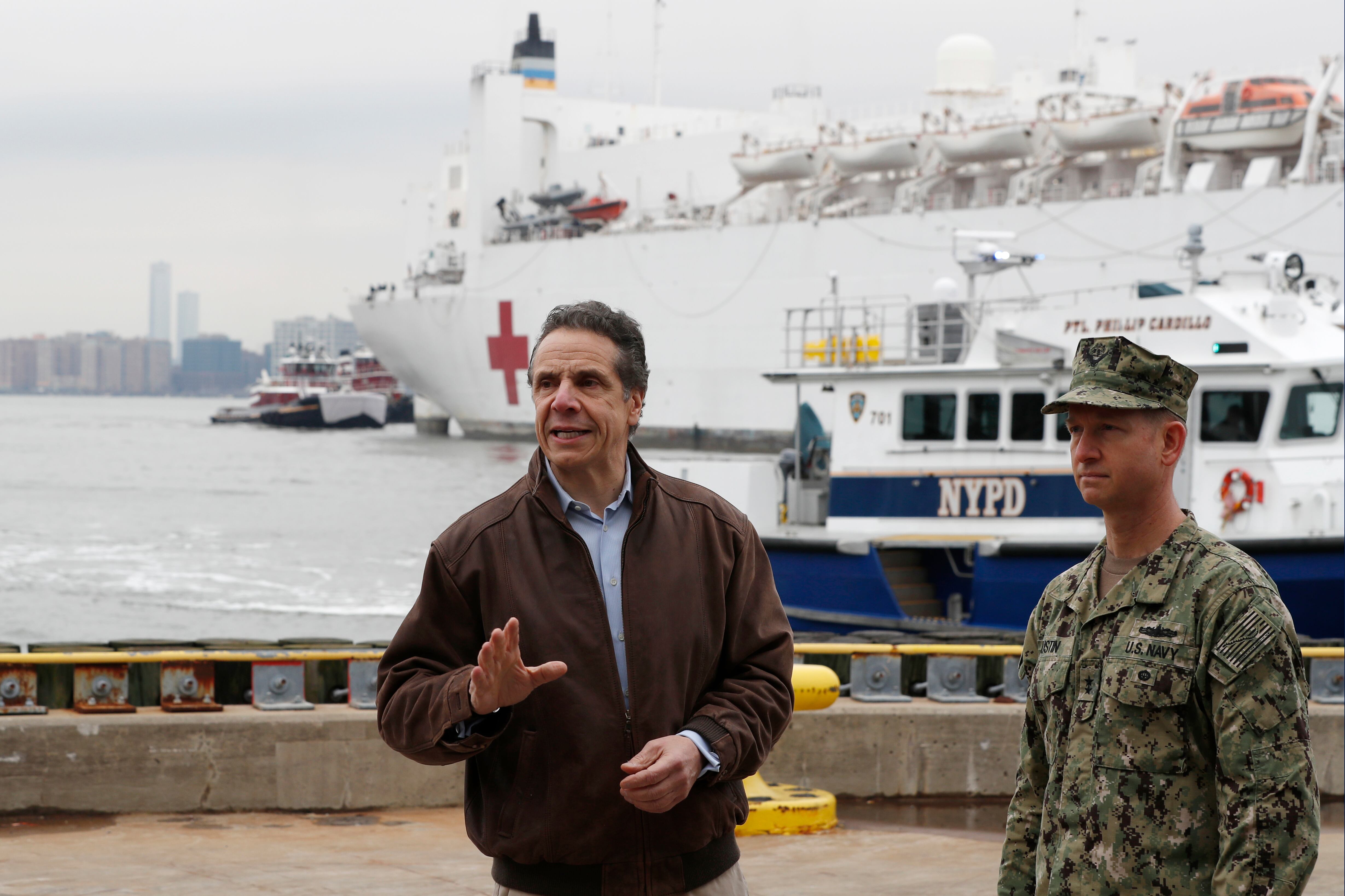New York Gov. Andrew Cuomo on Monday asked President Donald Trump to transition the USNS Comfort, docked at New York City, to begin transitioning to treat coronavirus patients.
The Mercy-class hospital ship was originally set up to aid with the overflow of non-COVID patients, but those cases have fallen off amid the citywide shutdown.
Now the ship's crew is quickly preparing to transition the hospital to serve as a field hospital for coronavirus patients, similar to the operation underway at the Javits Convention Center.
Indeed, the two federally run hospitals plan to coordinate their work to take advantage of their respective strengths and weaknesses.
"We're going to balance the levels of care required between the two stations," Joseph O'Brien, commodore of the Comfort's COVID response in New York City, told Cheddar.
Patients who are convalescing from coronavirus will likely go to the Javits Center, while more difficult cases will be funneled into the Comfort.
"We're taking some of the higher-complexity cases on board, due to the fact that we have a fully staffed hospital," O'Brien said.
The crew is currently working to reconfigure the ship so that it can accommodate coronavirus patients, which involves cutting the capacity in half from 1,000 to 500 beds.
This is necessary to create space so that more transmissions don't take place on the ship, O'Brien said.
One crew member of the Comfort so far has tested positive for coronavirus.
O'Brien said the entire crew was screened, not tested, five days before disembarking for New York City. Add in nine days at sea, and that almost meets the window of self-isolation. But, he said "that's the difference between screening and testing."
"Even though we did everything right. We were ahead of the curve. We were really stringent in our preps," he said. "That's what happens when you don't obey the order to stay inside."









